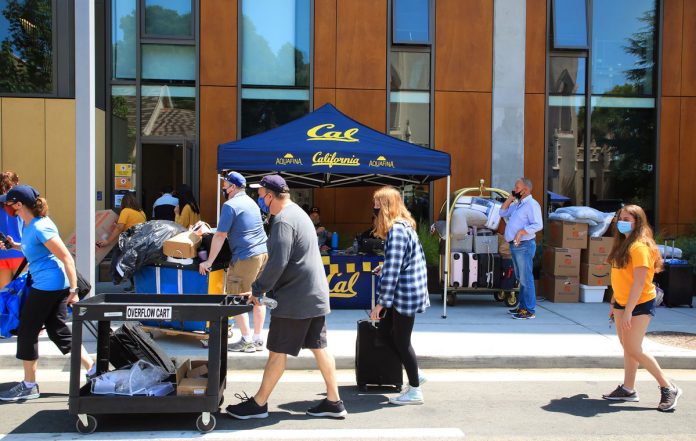
You may have noticed over the past few weeks a flurry of new laws entering the books in California.
Measures have recently been approved to make universal mail-in voting permanent, remove the word “alien” from state laws and ban recycling symbols on things that aren’t actually recyclable.
California has also added first-in-the-nation protections for Amazon warehouse employees and garment workers, and adopted slates of legislation addressing police misconduct, homelessness, the housing shortage and funding for schools.
To understand why all these changes are happening at once, here’s a quick civics refresher:
For the state to adopt a new law, both houses of the Legislature must pass the measure, and then Gov. Gavin Newsom needs to give final approval.
The last day for California lawmakers to approve legislation this term was Sept. 10, at which point they sent hundreds of bills to Newsom’s desk. The governor has until Sunday to take action.
Already, Newsom has approved more than 350 bills and vetoed about 25, according to data from his office. (A few notable vetoes: proposals to boost family leave payments, require businesses to prove they’re not contributing to deforestation and allow farmworkers to vote to unionize by mail.)
Newsom still has many more decisions to make by the end of the week, including about some measures that were hotly debated in the Legislature. Here’s a snapshot:
AB 101: Making ethnic studies a graduation requirement
Under this proposal, public school students would be required to complete an ethnic studies course to graduate from high school starting in the fall of 2024. This is the third attempt by Assemblyman Jose Medina, D-Riverside, to pass such a mandate, CalMatters reports.
Newsom vetoed this idea last year amid pushback from some parents as well as members of the state’s Jewish community, which said the curriculum had bias toward Palestine.
AB 1238: Decriminalizing jaywalking
This bill would remove fines for crossing the street outside of a crosswalk — unless there’s imminent danger. There would be no more tickets for running across the road when cars are nowhere to be seen.
Supporters of the law say the police enforce jaywalking laws in unequal ways or use them as pretext to detain people for no good reason. Police officers in California are five times as likely to stop a Black person for a walking infraction as a white person, Bloomberg CityLab reports.
AB 1456: Expanding college financial aid
This measure would significantly loosen eligibility requirements for college financial aid so that tens of thousands of additional students could receive assistance.
The proposal, expected to cost between $85 million to $175 million a year, is the latest attempt by lawmakers who have long wanted to provide more financial help to students, CalMatters reports.
The governor’s finance department opposes the bill, but supporters hope that the state’s budget surplus will persuade Newsom to sign it anyway.
AB 928: Making it easier to transfer to four-year colleges
This bill could be another with big consequences for the state’s college system, as it would smooth the path for community college students to transfer to a California State University or University of California campus.
Lt. Gov. Eleni Kounalakis and student groups endorse the measure, while the UC Office of the President and Newsom’s finance department are against it, CalMatters reports.
SB 110: Paying drug users not to use
California could become the first state to begin treatment that pays people not to use methamphetamines and cocaine. This bill would allow the state’s Medicaid program to fund these novel efforts.
Studies have found that positive reinforcement — in this case, paying people not to use drugs — is the most effective treatment for meth or cocaine addiction, particularly when combined with behavioral therapy, KQED reports.
SB 98: Protecting rights for journalists
After recent injuries and arrests of journalists covering protests, this measure aims to limit how much the police can interfere with the news media at public events.
The bill would prevent police officers from blocking journalists covering demonstrations and stop them from citing journalists for failure to disperse or for obstruction for being where they need to be to do their jobs.
Newsom vetoed a version of this bill last year.
This article originally appeared in The New York Times.
Copyright 2021 The New York Times Company













